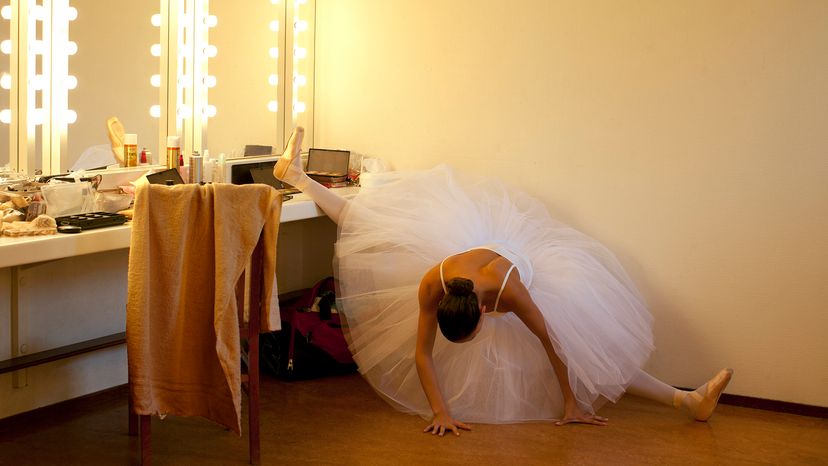The origins how the term originated are mysterious, with a few popular theories explaining how it became associated with encouragement.
One explanation links it to superstitions that were more prevalent in the early days of theater. People believed that saying "good luck" directly was actually considered bad luck, or jinxing the good luck. Some even believed that saying "good luck" directly might attract evil spirits.
So when someone says the opposite, "break a leg," they’re actually wishing a performer the opposite: good luck.
Some think the phrase comes from the German phrase "Hals-und Beinbruch," which translates to "neck and leg break" and also meant "good luck" in the theater world.
Breaking the Leg Line
There's another potential link to early American theater history. Some think the phrase "break a leg" refers to crossing the "leg line" on stage.
This was an invisible line separating the main stage from the wings, where actors would wait to go on stage. When a performer crossed this line, they were officially visible to the audience and part of the show.
During vaudeville times, when some acts would get pulled if there wasn't enough time, it wasn't until the actors crossed that "leg line" that they would get paid. So they needed to "break a leg (line)" to make a living.
John Wilkes Booth
And lastly, darker theory links the catch phrase to John Wilkes Booth. The actor-turned-assassin who killed President Lincoln wrote in his diary that he broke his leg while fleeing from the murder.
Though this connection is considered a stretch in popular etymology, "breaking a leg" would refer to Booth jumping from the presidential box in the audience onto the stage after committing the crime. Somehow, this doesn't seem like a great way to wish someone luck.
